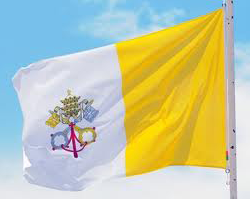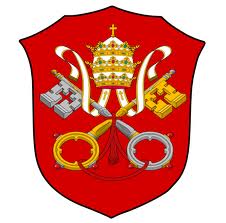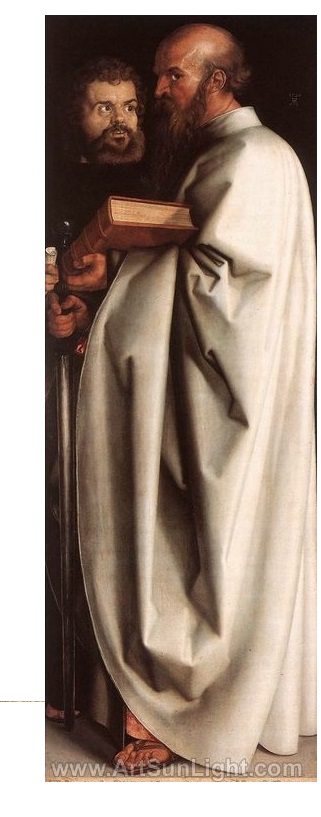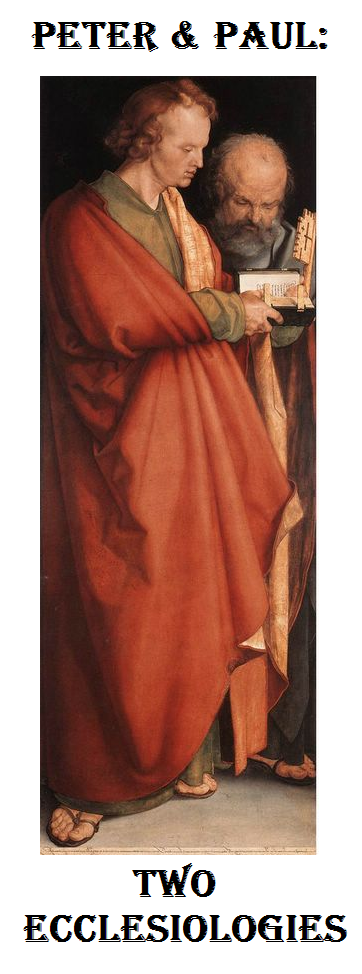
The last two popes (John Paul II and Benedict XVI) are the sort of men who pass out loyalty oaths. Pardon me a hyperbolic metaphor, but in this regard I would say the Catholic Church as a whole has been undergoing asphyxiation. I see two large problems in this. I hope the next pope can begin to resolve them. Both have to do with governance of the church.
First, the last two popes revealed in acute form that the Catholic Church is, has been and, as far as they are concerned, will always be an absolute monarchy. That fact, that absolute, grounds both the achievement and failure evident in the reigns of John Paul and Benedict. Though the intensity of the monarchical rule depends on factors ranging from political context and available media of communication to the psychological character of the monarch, the historical inertia has been in the direction of centralization of power in the pope and his curial servants and advisors for the past millennium and a half.
 I doubt that anyone will be elected to the papal office now or appointed to the episcopacy who does not subscribe fully to that sanctified gathering and use of centralized power, nor do I believe now that anyone holding the papacy can reverse that inertia in any significant way. The greatest council in the history of the western Catholic Church tried and failed to do so, as should now be evident. I am permitted to hope the next pope, in concert with the convictions on the part of his electors and fellow bishops, will show respect when it comes to dealing with other bishops. That a pope, that bishops should be interested in what priests and lay Catholics think and believe is beyond hope . If the mature Christian faith and trust of a man like John XXIII and many of the fathers of the Great Council could be succeeded by a restoration of divine monarchy under John Paul II and his episcopal epigones, our future as a community of equals is not bright.
I doubt that anyone will be elected to the papal office now or appointed to the episcopacy who does not subscribe fully to that sanctified gathering and use of centralized power, nor do I believe now that anyone holding the papacy can reverse that inertia in any significant way. The greatest council in the history of the western Catholic Church tried and failed to do so, as should now be evident. I am permitted to hope the next pope, in concert with the convictions on the part of his electors and fellow bishops, will show respect when it comes to dealing with other bishops. That a pope, that bishops should be interested in what priests and lay Catholics think and believe is beyond hope . If the mature Christian faith and trust of a man like John XXIII and many of the fathers of the Great Council could be succeeded by a restoration of divine monarchy under John Paul II and his episcopal epigones, our future as a community of equals is not bright.
The second problem the next pope will face is undoing the docility of the episcopate created by his immediate predecessors. That Catholic bishops, like Catholic popes, are and should be men of orthodox catholic faith as exhibited in the classical creeds, conciliar teaching, and doctrines of the churches of Christ seems to me evident. But there is no need for Catholic bishops to be hermeneutical parrots. Bishops, archbishops and cardinals seem devoted to repeating, without nuance, the cascading stream of papal and curial pronouncements under John Paul and Benedict. We need bishops with brains and the courage to use them, and with the notion that their job is to witness to the gospel in their own circumstances without wary and pious eyes cast over their shoulders to "the holy father," waiting on him for enlightenment. They are appointed to witness to  Christ's resurrection and to serve the churches, not to witness to the papacy and serve it. They should be men capable of telling the pope he is wrong.
Christ's resurrection and to serve the churches, not to witness to the papacy and serve it. They should be men capable of telling the pope he is wrong.
The full blown renewal of the imperial papacy is in place now for more than a quarter of a century and the episcopacy has been reduced to mediocrity. One must ask whether reversal is any longer possible and whether the bishops are capable of honest and decent leadership of the churches. Surely they are not up to another Council. John Paul and Benedict, as secure as they seem to have been, could not have abided one. In a Council there are just too many voices that want to be heard by popes who are unwilling to listen. After all, that is just what happened at Vatican II. But the many voices are precisely what the church needs again.
Of course there is also room for hope, supernaturally grounded, that the Catholic Church can be healed of its current malaise and thrall, and to that hope I cling in prayer for the church. I pray, with conviction, "God help the next pope!" and "God help the church which must live under his rule!" This has likely been the prayer of many Catholics during conclaves.
William M. Shea
College of the Holy Cross